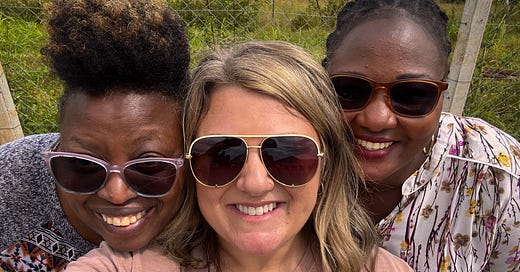There is, unfortunately, a widely held belief that women are, in their most common form, catty, unstable, petty, gossipers. Having even bought into this narrative myself for a portion of my life, I understand how easy it is to get wrapped up in this chronically negative view of women and the impact they have on culture, on history, on family.
But just because something has been made easy to swallow doesn’t mean it’s accurate.
There is a phrase that I often reference in my life when I’m confronting long held beliefs or labels: History is written by the victors. In other words, history is told by those who, at the end of the day, hold the most power and influence.
While often attributed to Winston Churchhill, the phrase is of unknown origin, some variation of it being used for many years before him. So we can be sure that for as long as our history has been told, there have been multiple versions of the same story floating about.
Essentially, though, it’s a good reminder that there is no conclusion without bias. We, as human beings, have a vested interest in our own affairs and therefore are wholly incapable of being objective.
But that’s okay. Unless you’re a judge, objectivity isn’t a standard for excellence.
In fact, I’d argue that what makes us human is our ability to put things into the perspective of our own lived experience.
Our biases are the lenses with which we see the world. And while there is absolutely nothing inherently wrong with those lenses, we do ourselves, and the world around us, a disservice by refusing to acknowledge that they exist.
Imagine you’re wearing sunglasses and the world as you view it is tinted a specific shade of golden yellow. If you were to take those sunglasses off, you’d know that you weren’t wrong in what you were seeing, a tree is a tree no matter the color. But the wash of gold hid some of the intricacies you can now see with the glasses off. Wearing sunglasses isn’t bad, but acknowledging that the world looks different behind different shades of sunglasses is an important part of understanding each other.
Acknowledging that we don’t all have the same lived experience is a vital piece of compassion. If we choose to believe that only certain points-of-view are worthy of taking up space, we choose to diminish and dismiss the voices of those deemed less than.
Women are natural storytellers. In fact, it is our inclination for story that often labels us as ridiculous, irrational, or too emotional. A gift that has been diminished and othered instead of celebrated and uplifted.
But women are also incredibly resilient and I’m proud of the stories we’ve told, even as our voices are devalued, stolen, misrepresented, and even criminalized. This goes doubly for women of color.
Don’t misunderstand me. This isn’t a crusade against any one person or people group. Rather, it is a reminder of the value that women’s voices hold and the risk they take everyday to use it. It is, for me, a way to thank the countless women that have come before me, known and unknown, that have paved the way for me to use my voice.
My voice is still one I’m getting comfortable with.
Sometimes it is barely more than a whisper.
But that’s okay. Because change doesn’t have to be loud. It is often found in the quiet determination and conviction.
March was women’s history month. And I’m so proud and humbled to have interviewed over 40 women for The Human Experience Podcast.
I am honored that they chose to share their story, some of the most vulnerable parts of themselves.
I am hopeful that the stories of women continue to inspire and shape generations of women to come.



